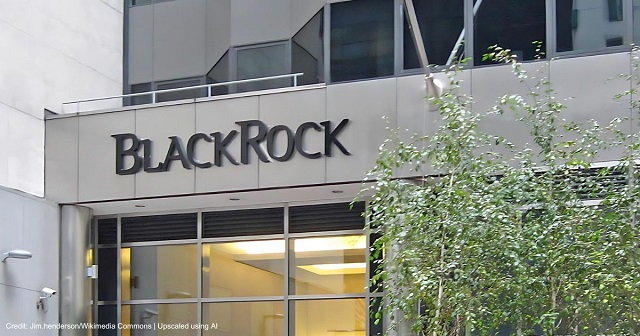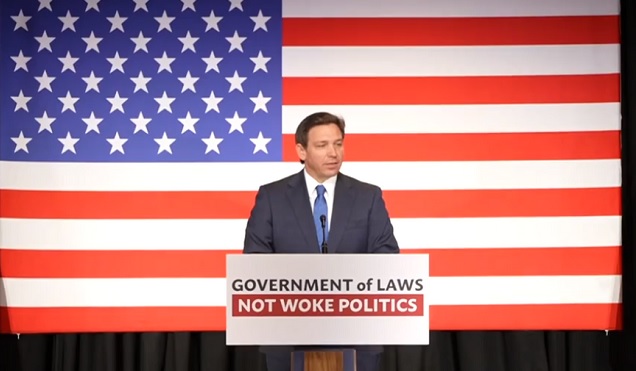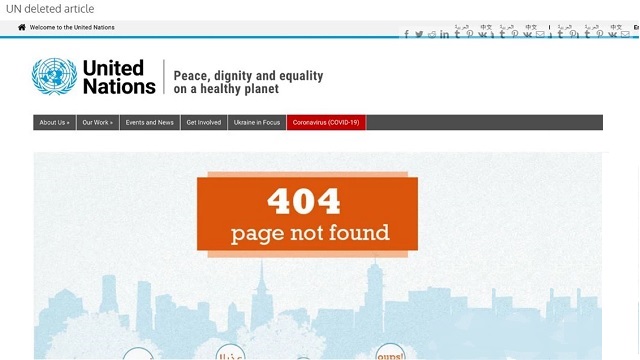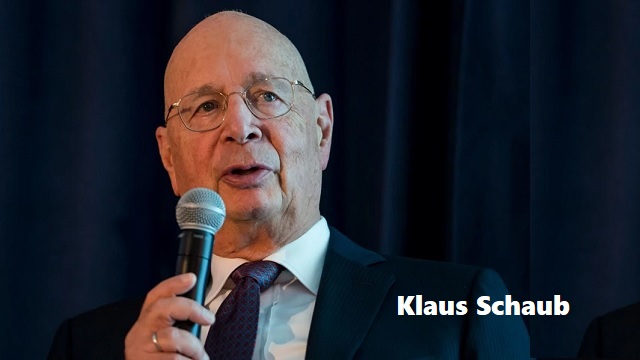Bruised BlackRock Slapped with Cease and Desist for Lying to Investors

It had been a relatively quiet 2024 for embattled BlackRock CEO Larry Fink — until about two weeks ago. Texas, in a massive blow to his woke firm, pulled the pin on an $8.5 billion dollar grenade, announcing that it was following through on its threat to drop Fink’s services where its school fund management was concerned. A firm that shuns oil and gas investments doesn’t have Texas’s best interests at heart, leaders decided. Turns out, that move — the single largest punch to BlackRock’s gut to date — was just the beginning of Fink’s spring headaches.
Late last week, Mississippi dropped another bombshell: a cease and desist order aimed at the firm’s blatant dishonesty about its ESG (environmental, social, governance) investing. When Fink cleverly withdrew BlackRock’s name from the controversial Climate Action 100+ initiative in February, he created the appearance that the world’s largest asset management firm wasn’t putting its environmental activism over its financial responsibilities. But looks can be deceiving. According to several sources, BlackRock’s anti-fossil fuel agenda is still very much alive, a fact that Secretary of State Michael Watson made abundantly clear in his complaint.
“BlackRock has made and continues to make untrue statements of material fact, and to omit material facts to make its statements not misleading to investors and potential investors in Mississippi,” the 29-page order read. “These misrepresentations pertain to BlackRock’s provision of investment services, especially its involvement in pushing Environmental, Social, and Governance (“ESG”) factors on portfolio companies. Additionally, many of BlackRock’s acts, practices, and courses of business operate or would operate as fraud or deceit upon investors and potential investors in Mississippi.”
With this legal action, Fink could face “an administrative penalty, potentially a multi-million dollar fine,” National Review warns. As far as the Magnolia State is concerned, BlackRock is openly double-crossing investors — an allegation that certainly won’t help rehabilitate the firm’s damaged image. Fink admitted last year that his company had already lost around $4 billion in business as a result of the backlash meted out by states. If he’s not careful, another serving of boycotts could be headed his way.
BlackRock claims to care about clients’ “long-term financial prospects,” Watson writes, but “[t]hese statements are untrue … because the consideration of ESG factors does not provide an indication of better financial returns or current or future risk profiles.” That, the secretary insists, is “misleading to investors who are interested in ESG for financial (as opposed to social or political) reasons, and who are led to believe that BlackRock’s ESG funds will receive a financial benefit from BlackRock’s consideration of ESG criteria.” Not to mention, he adds, “BlackRock charges higher fees for some of its ESG funds than it does for comparable non-ESG funds.”
Interestingly, Mississippi isn’t one of the 12 states who’ve either divested from BlackRock or passed laws that make that decision likely in the near future. This action, as Wild Hild of Consumers Research explained, is unique — a “first-of-its-kind” attack on the leftist agenda driving so many of these funds. BlackRock’s CEO continues “to pretend that the only time they engage in ESG, it is with permission of the shareholders — but in reality, ESG policies have seeped into every facet of BlackRock’s asset management. They’ve been lying to their customers,” Hild added.
This doesn’t surprise The Political Forum’s Stephen Soukup, author of “The Dictatorship of Woke Capital,” who pointed out to The Washington Stand, “Larry Fink wanted to be famous. Now that he is, he’s learning that one of the perils of fame is that everyone, everywhere knows what you’re doing and why you’re doing it. Among those paying the closest attention to the now-famous Fink and his massive asset management firm are elected officials, who have a clear responsibility to protect the interests of their constituents.” He believes that what we’re seeing “in Mississippi, Texas, and in other red states is the consequence of Fink’s quest for fame, wealth, and power as it collides with Republican elected officials’ quest to do their jobs to the best of their abilities.”
Publicly, the wave of 2022 backlash that led states to quit BlackRock seemed to humble Fink. Last summer, he decided to drop ESG from his lexicon because the term was too toxic. He pivoted to “energy pragmatism,” which he explained as investing in clean energy while also backing “traditional energy sources, like fossil fuels.” The firm even showed more restraint on ESG shareholder proposals, supporting just 7% of the 400 submitted according to the last annual report. “That is a marked shift,” the Washington Examiner pointed out. “BlackRock supported nearly a quarter of such proposals in the previous cycle and 47% of environmental and social proposals the cycle before that.”
And yet, none of these surface-level changes seemed to comfort Texas, where local officials warn that the firm’s anti-fossil fuel agenda will ultimately haunt the state. “BlackRock’s dominant and persistent leadership in the ESG movement immeasurably damages our state’s oil & gas economy and the very companies that generate revenues for our Permanent School Fund (PSF),” State Board of Education Chairman Aaron Kinsey argued. “Texas and the PSF have worked to grow this fund to build Texas’ schools. BlackRock’s destructive approach toward the energy companies that this state and our world depend on is incompatible with our fiduciary duty to Texans. Today represents a major step forward for the Texas PSF and our state as a whole. The PSF will not stand idly by while our financial future is attacked by Wall Street.”
Both Texas and Mississippi are committed to holding BlackRock’s feet to the fire — a move that the 1792 Exchange’s Paul Fitzpatrick applauds.
“It’s troubling to see the largest asset manager in the world, which has an army of lawyers and a fiduciary duty to customers, including state pensions for nearly all 50 states, making clearly contradictory statements,” Fitzpatrick told TWS. “To fulfill its ESG and ‘sustainable’ commitments to coalitions like the Net Zero Asset Managers initiative, BlackRock pledges to use ‘all assets under management,’ not just the funds labeled ESG, to change behavior of companies to advance political goals. This doublespeak includes the use of proxy voting, whereby BlackRock uses its customers’ funds to vote for various ESG proposals. Many customers who did not opt into ESG funds would never have voted for a ‘racial equity audit’ at The Home Depot or for Exxon Mobil to pursue net zero goals, among other resolutions,” he points out.
“We hope Secretary Watson’s courage inspires other state leaders to hold all fiduciaries accountable.”
AUTHOR
Suzanne Bowdey
Suzanne Bowdey serves as editorial director and senior writer at The Washington Stand.
RELATED ARTICLES:
Which Lawmaker Accepted More BlackRock Money Than Any Other Member Of Congress?
Florida Takes $2 Billion Away From BlackRock Due To Firm’s Activist Investing Standards
BlackRock, GiaxoSmithKline and the Great Reset
EDITORS NOTE: This Washington Stand column is republished with permission. All rights reserved. ©2024 Family Research Council.
The Washington Stand is Family Research Council’s outlet for news and commentary from a biblical worldview. The Washington Stand is based in Washington, D.C. and is published by FRC, whose mission is to advance faith, family, and freedom in public policy and the culture from a biblical worldview. We invite you to stand with us by partnering with FRC.






